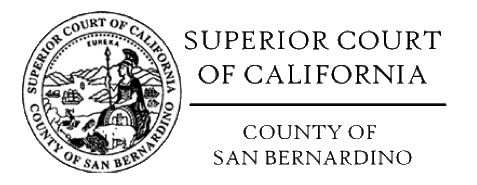|
Court hears final arguments
on Silver Valley billboards
|
May 25, 2013

Superior Court hears final arguments on 6 year old case.
California Superior Court Judge Brian McCarville held a
hearing in his San Bernardino Department 36 courtroom on Friday, May 24, 2013 for final oral
arguments by opposing attorneys on the legality of county issued permits for billboards
along Interstate-15 and Interstate-40 in the Silver Valley.
The billboard permits were acquired by General Outdoor
Advertising in 2006 after principal owner and operator, Tim Lynch, followed his brother Spike
Lynch's recommendation to seek placement of large double-sided billboards within the Silver
Valley. The acquisition of the permits however took many years and multiple applications.
The billboard sites originally contained restrictions that prevented
billboard companies from applying for permits. Restrictions included improper zoning for
billboards, a Scenic Highway designation along Interstate-15, and Interstate-40 being covered by
Lady Bird Johnson's federal Highway Beautification Act that prohibits billboards.
Spike Lynch, a resident of Newberry Springs, however felt
that he could acquire local political support to have the county Board of Supervisors
grant the necessary permits so that he could bring home the bacon.
In a sworn deposition on September 19, 2011, Tim Lynch states that over
the years of billboard applications for the Silver Valley, he personally conducted billboard
promotional visits with county First District supervisors Kathy Davis, later Marsha Turochi,
and still later Bill Postmus. Apparently this was to influence billboard acceptance by
county department heads who were initially turning the applications down.
 Spike Lynch
Spike Lynch
The effort took years but suddenly the prized Scenic Highway
designation on I-15 was mysteriously and quietly removed. Spike Lynch achieved a
split in the community's opposition by offering controversial bribe promises of sharing billboard
revenue with community groups that supported his billboard plan. Then there was the
billboard spot zoning, illegal under Billboard Law, that was granted by the county Board
of Supervisors after campaign contributions to Bill Postmus that totaled
thousands of
dollars.
The Superior Court case was filed by Newberry Springs real estate broker
Fred Stearn in October 2006; and with co-plaintiffs Coalition to Ban Billboard Blight and Harold
and Ruth Krotz, the case has been represented by attorney Randal R. Morrison of San Diego, reputably
the nation's leading billboard law expert. The defendants, the County of San Bernardino and San
Diego Outdoor Advertising, Inc. (General Outdoor Advertising as Real Party in Interest) have been
principally represented by attorney Gary S. Mobley, of Huntington Beach, CA.
Opening arguments on May 24 were made by plaintiffs' Randal Morrison
who capsulized the plaintiffs' arguments by focusing the court's attention upon a single document
contained in the Administrative Record, claiming that it represented the applicable law on the
matter and that the county violated the law in issuing the permits. Morrison's oral presentation
was focused like a laser and was amazingly short for a case that has been lingering through the court
system for six-and-a-half years.
The defense countered with what appeared to be a well presented but
off legal topic arguments that the county's spot billboard zoning was part of the county's general
plan upgrade and that the involved communities fully supported the billboards and the sharing
of revenue income. Judge McCarville questioned Mobley as to whether commercial
developments, even if conceived with good intent, could be done through a process that
the defendants followed. In having to make a ruling based upon the law, the judge clearly
appeared to have a problem with the county's methodology in issuing the permits.
The entire hearing took only 33 minutes. There remains a good
likelihood that however the court is persuaded to rule, the decision will be appealed by the
losing side to the state Appellate Court.
The Community Alliance continues to believe that the legal preponderance of
evidence clearly weighs against the county's issuance of the billboard permits and that the
anti-billboard plaintiffs will eventually prevail; through the upper courts if necessary.
A portion of Mobley's pro-billboard argument did not appear to be based
upon the law; but upon the economic benefits to the communities in the revenue sharing scheme.
As previously published in the Blotter as early as 2011, this was expected to be an
argument presented before the court. When the law doesn't support your position, you distract
the fact by making positive, warm and cozy, feel-good statements.
As long contended by the Blotter, the continued revenue
sharing scheme after the issuance of the billboard permits, has been orchestrated
for the court's consumption. Spike Lynch and General Outdoor Advertising have not given
any legally binding document that would guarantee that their promised revenue sharing
would continue. Spike Lynch has already
reneged
on the promised methodology of revenue sharing.
No tentative decision has been issued by the court that announced
that it would issue a written decision by June 10, 2013.
Click here to read, "Like,"
comment, or share on:

|
Follow us on Twitter and
be notified of new stories:

|
• • •
Home: http://NewberryInfo.com